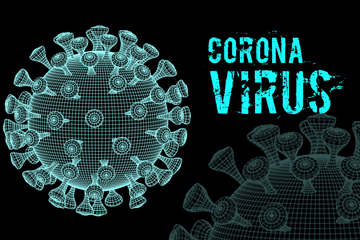The new coronavirus disease that was first identified in Wuhan, China was declared a global emergency by the World Health Organization (WHO) on January 31, 2020. This contagious respiratory illness has been named “COVID-19”.
While most of the infections are in China, where more than 77,000 people have the disease and over 2,600 have died, a February 25 BBC report noted that more than 1,200 cases have been confirmed in about 30 other countries, with more than 20 deaths. According to the latest update from the Centers for Disease Control and Prevention, there are 53 confirmed cases of COVID-19 in the U.S. of which 36 are people who returned from the Diamond Princess.
COVID-19 causes mild, flu-like symptoms such as fever, cough, difficulty breathing, pain in the muscles and tiredness. Severe cases lead to pneumonia, kidney failure and even death. As there is no vaccine or specific treatment available for the 2019-nCoV, the only option is to prevent this viral infection.
The WHO has recommended basic protective measures against the new coronavirus. Follow these measures to take care of your health and protect others from getting sick –
Basic prevention tips
- Clean your hands often with soap and running water; use an alcohol-based hand rub if your hands are not visibly dirty.
- Avoid touching your eyes, nose, and mouth with unwashed hands.
- Maintain a distance of at least one meter with anyone who is coughing or sneezing.
- Cover the mouth and nose with a flexed elbow or tissue while coughing and sneezing.
- if you have fever, cough or difficulty breathing, seek medical attention early.
- Strictly follow all the advice given by your healthcare provider.
Practice food safety
- Cook meat and eggs thoroughly
- Avoid eating dead or sick animals
- Wash your hands between handling raw and cooked food
Stay healthy while traveling
- Avoid travelling if you are sick
- Avoid close contact with people who are sick
- Eat only well cooked food
- Avoid spitting in public
If you begin to feel unwell, even with mild symptoms such as headache and slight runny nose, stay at home until you recover. Seek medical advice for flu-like symptoms (fever, cough and difficulty breathing) – call in advance.
